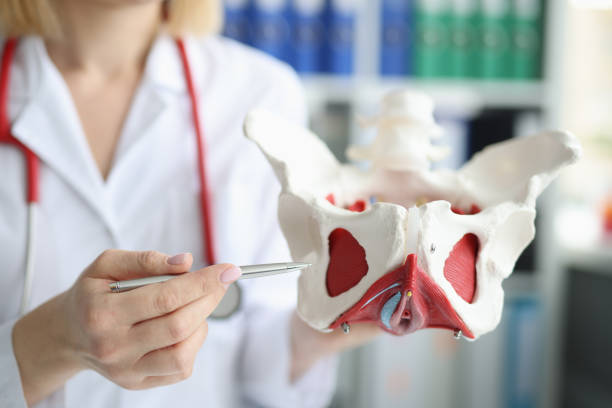Pelvic Floor Physical Therapy
DIRECTED BY Wendy Westphal, PT and April Hammon, OT
|
Pelvic floor rehabilitation is a new subject to many people and can pose the challenge of overcoming barriers of discomfort and trust. Symptoms bringing people in for care are understandably sensitive in nature. Most importantly, treatment for these and other pelvic region symptoms will only ever be at the patient’s comfort level without obligation. Our physical therapist understands the importance of compassionate, individualized, and adaptable treatment to meet everyone’s unique needs and goals.
On a first visit, the physical therapist will start with an at length discussion of your symptoms that will direct the examination and the course of treatment. Depending on the symptoms, the examination to follow may include: a postural assessment, gait analysis, discussion of food and fluid intake, range of motion observations, and muscular testing. Part of the muscular testing involves a gloved palpation externally in the region of the sit bones (ischial tuberosities). Ideally, the patient will disrobe from the waist down in a private treatment room and then lie face up with an examination gown draped over the hips and legs like a blanket. Upper body clothing is kept on as this is not part of the pelvic floor assessment. If no external exam findings are prohibitory of internal assessment, the pelvic floor muscles will ideally be tested vaginally, rectally, or both depending on the symptoms. Clean gloves and lubrication are used by the physical therapist for this assessment. Important data such as the quality of resting muscle tone, pinpointed location of symptoms, muscular endurance and many other details can be acquired with this assessment. Patients are welcome to bring a chaperone. The above described assessment can be discontinued at any time at the patient’s discretion for delayed, future, or never resuming the examination. Therapy will only ever be within the patient’s consent and comfort level. Physical therapy is most successful with both patient and therapist working together as a team. |
Diagnoses we treat:
For more information on our Pelvic Floor program please contact [email protected]
- Urinary Incontinence
- Fecal Incontinence
- Constipation
- Painful Intercourse
- Coccxydynia
- Pelvic Pain Complexes
- Childbirth Recovery
- Endometriosis
- Vaginismus
- Prolapse
- Gender Confirmation Surgery
- Prostate Surgery Recovery
- Pelvic Floor Reconstructive Surgery
- Hysterectomy
- Pelvic Congestion
- Muscle wasting
For more information on our Pelvic Floor program please contact [email protected]


